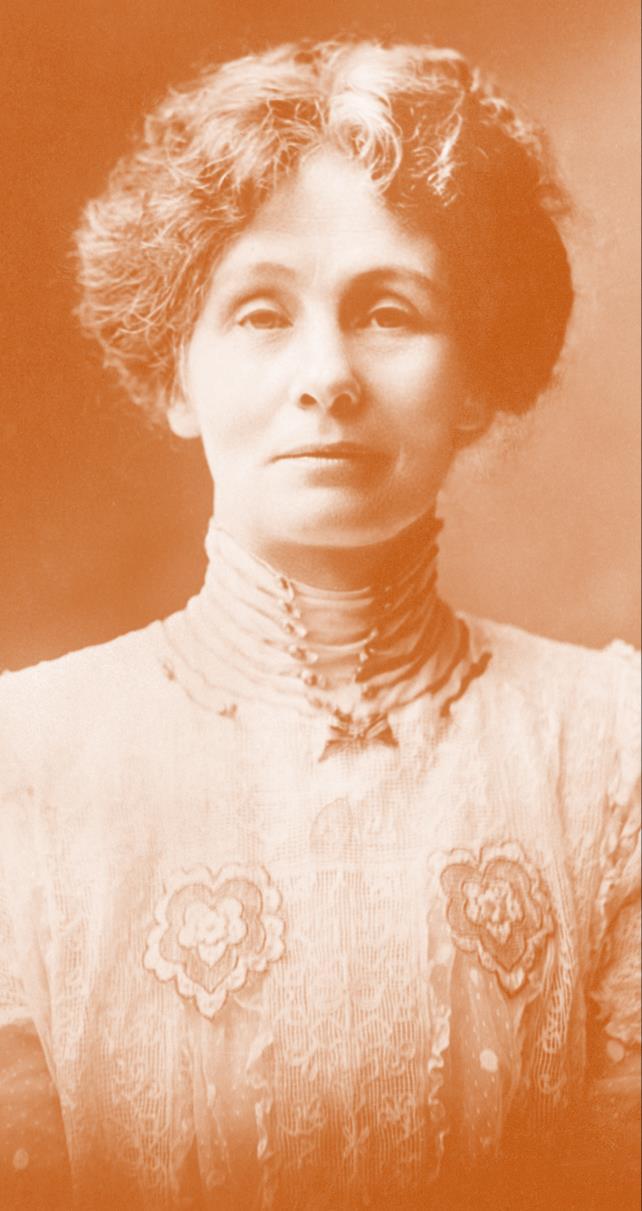
2 minute read
Emmeline Pankhurst (Nuria Yugo, César Moliner and Manish Raj
Emmeline Pankhurst
Nuria Yugo, César Moliner and Manish Raj
Advertisement
I, Emmeline Pankhurst, was born in England on 15th July 1858. All my life I had been an activist for women voting rights. I drew my last breath my last breath at the age of 69 on 14th June 1928.
I was a British political activist, and I fought vigorously all my life to achieve the right to vote for women. I will be best remembered for organizing the UK suffragette movement at the early age of 14. Times magazine named me as one of the 100 most important people of the 20th century. I not only influenced UK policies towards women but also left my footprint across the Atlantic in the USA. Women in the USA took inspiration from my movement and fought for their right to equality. I shook society into a new pattern from which there could be no going back. I was widely criticized for my militant tactics, but my work is recognized as a crucial element in achieving women’s suffrage all around the world.
To understand my legacy, you have to go back to Europe in the 19th century, where even though the Napoleonic Civil Code was unanimously considered a masterpiece of liberal legislative art but hardly gave any rights and liberty to women.
The gender order that emerged in the late eighteenth century defined male and female roles by linking them to specific spaces of action. Women were excluded from institutionalized politics, the sciences, and the army, while a family law inscribed within the
civil code made them subordinate to men. The revolutions of the nineteenth century challenged these inequalities. The various demands of women in 1848 – the right to vote, complete university studies, or visiting a café in the evening without male companydemonstrate to what extent they were aware of the inherent contradiction in the bourgeois and liberal conception of liberty and equality.
In collaboration with the Women's Franchise League, we created our own association, men didn't want to take account of our votes, since most of the participants were married and it was supposed that our husbands “voted for us”.
Our association was considered radical since we also supported access to divorce and inheritance for women. The most conservative males named us “the association of the splinters”, and insisted on the idea of our association being a threat to civilization, ridiculing us and making us split a year later.
In case you want me to state my achievement, I can say only one thing, equal rights to everyone regardless of their gender. This idea led to voting rights for women in 1918.
If there is something to be learnt, is that we should not take anything for granted and to make society better and equitable, we need to understand each other better and stand up and fight for all the downtrodden people in society.
SCAN ME AND LISTEN TO THIS TESTIMONY











